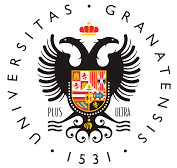website: https://www.ugr.es/en/
 The University of Granada (est. 1531) is a public comprehensive research university with approx. 56,000 students, 62 undergraduate degrees, 106 master’s degrees and 28 doctoral programmes. The UGR is currently ranked 3rd in Spain according to the Shanghai ranking (2019) and is the leading regional university in the south of Spain. As a public higher education institution it is committed not only to quality and excellence in education, learning and research but also to activities targeting the transfer of scientific, technical and artistic knowledge to society, the betterment of society and a sustainable environment.
The University of Granada (est. 1531) is a public comprehensive research university with approx. 56,000 students, 62 undergraduate degrees, 106 master’s degrees and 28 doctoral programmes. The UGR is currently ranked 3rd in Spain according to the Shanghai ranking (2019) and is the leading regional university in the south of Spain. As a public higher education institution it is committed not only to quality and excellence in education, learning and research but also to activities targeting the transfer of scientific, technical and artistic knowledge to society, the betterment of society and a sustainable environment.
The UGR has played a leading role in the longest-standing European university network, the Coimbra Group, which it chaired from 2010 to 2017 and other networks (UNIMED, EUA, IAU or AUF). Key partner institutions are to be found in Latin America, China, Morocco, Togo, and the United States, where the UGR has a strategic partnership with the Ivy League Consortium for Advanced Study Abroad (CASA) led by Brown University. The UGR regards internationalization as a policy priority. It is a leading participant in the Erasmus mobility scheme from its outset, in recognition of which it received the Erasmus Gold Star Award in 2007. Furthermore, it is also very active in E+ KA2 and predecessor programmes. One of its latest achievements is the coordination of the Arqus European University Alliance, one of the first 17 European Universities funded under the Erasmus+ programme.
The Granada team works on neurocognitive aspects of the bilingual brain and their relation to different processes like memory, numerical cognition, etc. This team is interested in understanding the nature of these mechanisms in a variety of populations (children, older people, etc) and situations by using a wide range of neuroscience techniques.
This team leads the Bilingualism Matters branch “Bilingualism matters at Granada”. The goal of this organization is to raise awareness about the social, cognitive and linguistic benefits of bilingualism and second language learning, and to share our expertise (in an accessible format) with schools, policy-makers and the local community. Currently, the Granada team carries out a dissemination national project entitled “How several languages coexist in the brain: transferring research from the lab to the society” that aims generating multilingualism and multiculturalism activities, encouraging passion for science, and promoting science in women.

Alejandra Marful
email: marful@ugr.es
Associate professor at the Department of Experimental Psychology at the University of Granada, and member of the Mind, Brain, and Behavior Research Center. Alejandra Marful’s research is focused on cognitive neuroscience, specifically on the processes involved in memory, language, bilingualism, and aging. Her teaching experience includes language, memory and research methods. She has relevant publications in JCR journals and has participated as IP or collaborator in national and regional projects related to cognitive neuroscience.

Teresa Bajo
email: mbajo@ugr.es
Full professor at the Department of Experimental Psychology at the University of Granada, and member of the Mind, Brain and Behavior Research Center. She is expert on cognitive neuroscience with a special focus on language, memory and bilingualism. She has teaching experience in language and memory processes at the Faculty of Psychology (Graduate and postgraduate level), and at the Faculty of language Translation and Interpretation. She is author of more than 170 scientific articles, and PI of national and international projects on neurocognitive processes on bilingualism.

Daniela Paolieri
email: dpaolieri@ugr.es
Associate professor at the Department of Experimental Psychology at the University of Granada, and member of the Mind, Brain, and Behavior Research Center. Teaching experience in language and memory processes in the Faculty of Psychology and Speech Therapy at the graduate and postgraduate level. She currently carries out research on cognitive psychology in the areas of psycholinguistics and memory, especially she has focused on grammatical gender processing in language production and comprehension, addressing this issue both in monolingual and bilingual contexts.